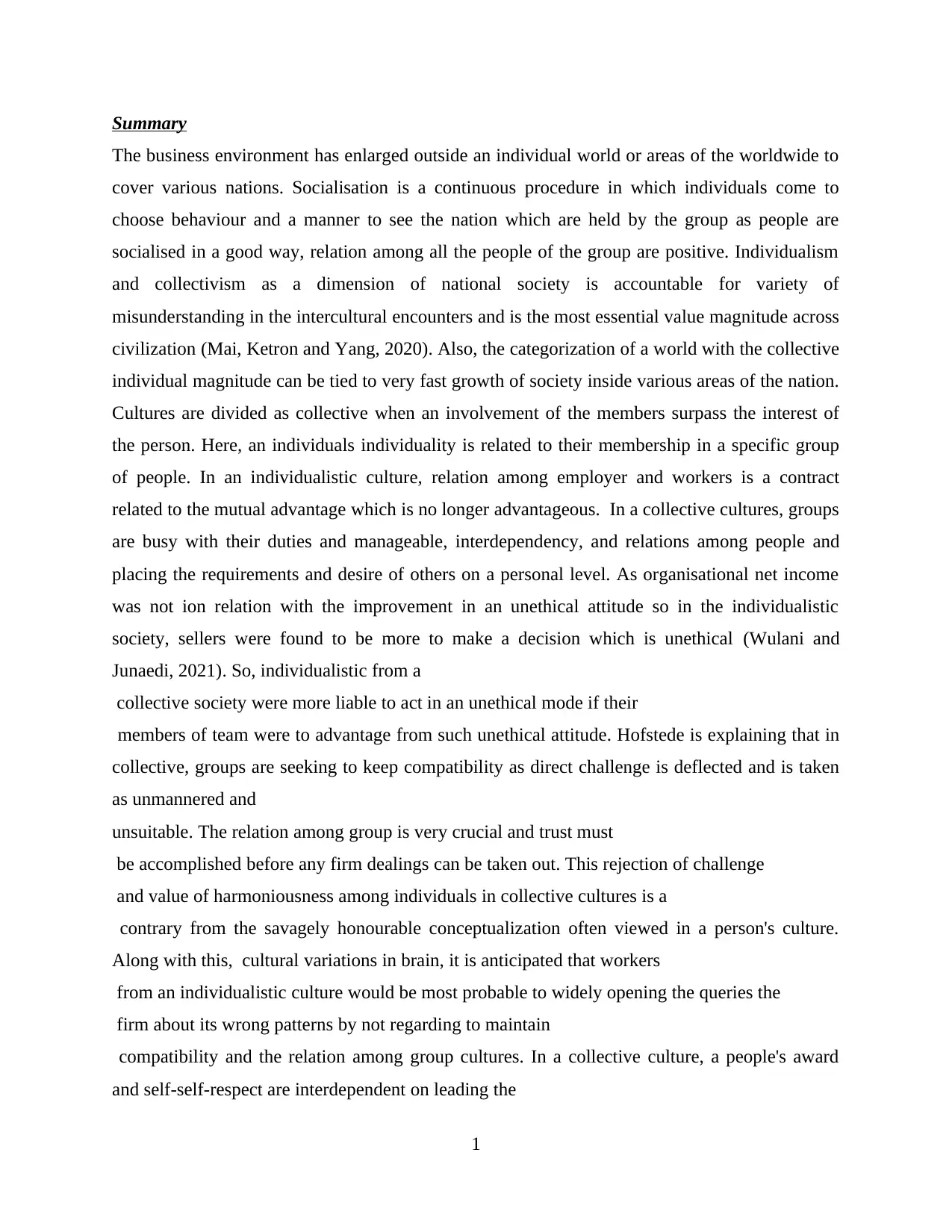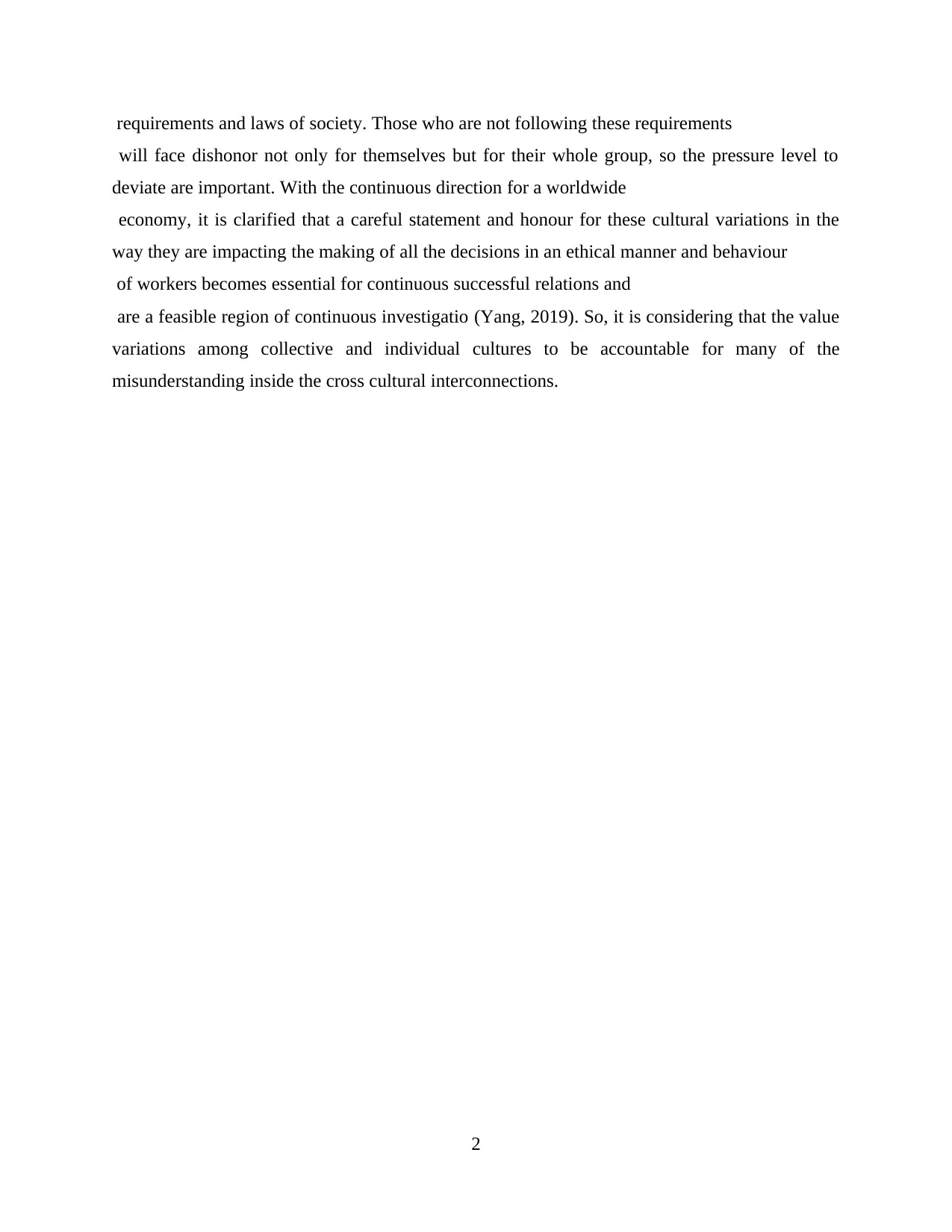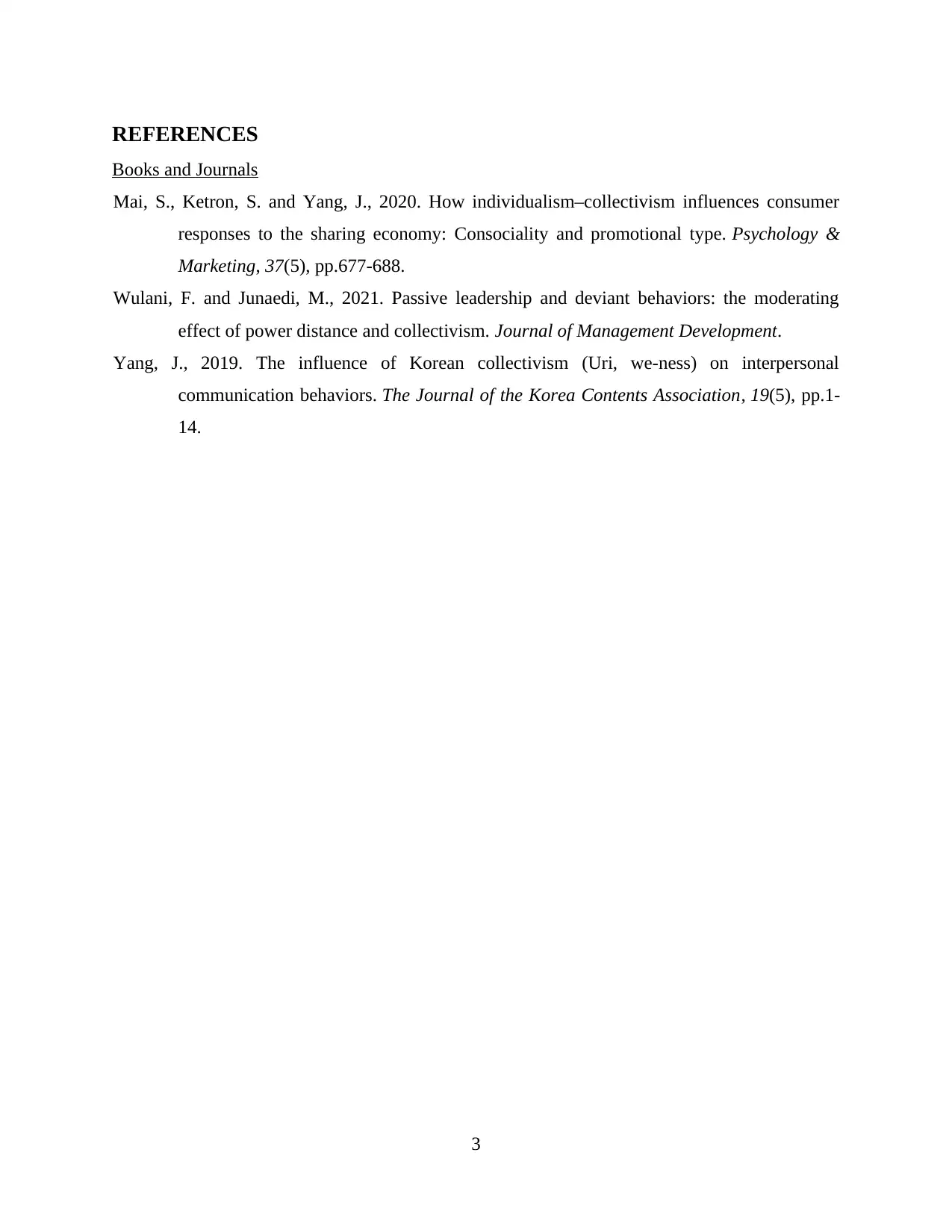Cross-Cultural Business: Summary of Individualism and Collectivism
VerifiedAdded on 2023/06/13
|4
|672
|110
Essay
AI Summary
This essay provides a summary of how individualism and collectivism, as dimensions of national culture, impact the business environment and intercultural interactions. It highlights that socialization shapes individual behavior and perceptions within a group, influencing relationships and ethical decision-making. Collective cultures prioritize group interests and harmony, while individualistic cultures emphasize individual autonomy and contractual relationships. The essay further discusses how these cultural differences affect ethical conduct, with individuals from collectivist societies prioritizing group benefit, even if it involves unethical behavior. It emphasizes the importance of understanding and respecting these cultural variations for successful global business relations and suggests further investigation into their impact on ethical decision-making and worker behavior. Desklib offers similar solved assignments and study tools for students.
1 out of 4










![[object Object]](/_next/static/media/star-bottom.7253800d.svg)